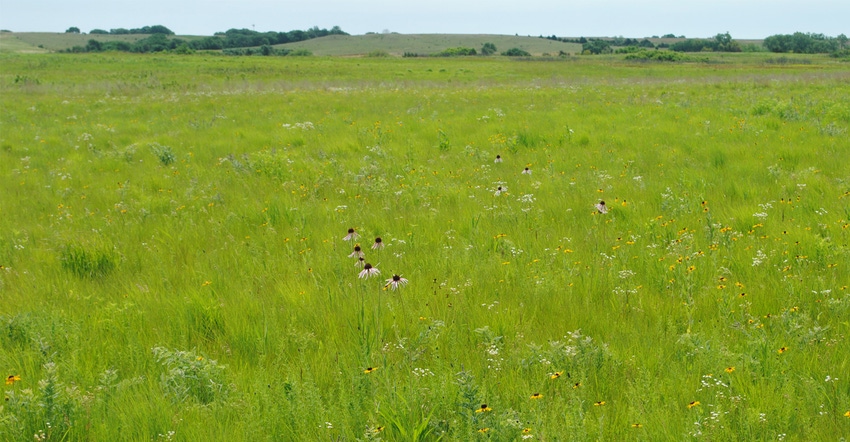
An Iowa native was recently named the new USDA Natural Resources Conservation Service Nebraska state conservationist.
Robert Lawson, who started his new position Feb. 13, grew up on a family farm in southeast Iowa and received his bachelor’s degree in public service and administration from Iowa State University. Working for NRCS over the past 18 years, Lawson has served in field offices in Iowa and Illinois, and has held NRCS leadership positions in Wisconsin and Indiana.
Craig Derickson served as the state conservationist for a decade before retiring at the end of 2020 after 35 years of federal service. Since then, Jeff Vander Wilt, Britt Weiser, John Wilson and Stacy Riley have acted as the state conservationist. Now, Lawson takes the helm.
Farmer challenges
Lawson acknowledges that Nebraska’s farmers and ranchers are dealing with the same issues as other producers across the Midwest, including increasing land prices, rising input prices, weather extremes and more worries about the bottom line.
“That’s where NRCS can be helpful,” he says. “Landowners’ concerns can be partially addressed by having healthy natural resources. We know that healthy soil can help decrease inputs, because practicing no-till saves time and fuel, and improving irrigation efficiency saves water and pumping costs.”
All of these and other conservation measures can help improve the profit margin. “I also get that it’s not just about profits,” Lawson says. “Nebraska’s farmers and ranchers care about leaving their land in better shape than how they found it. Sustainability means being able to continue doing the work on the land they love, and NRCS can help make that goal happen.”
Expand outreach
Lawson understands the strong conservation ethic of Nebraska growers. “To help meet the deep desire Nebraskans have to care for natural resources on private lands, I want to build on the already strong Nebraska conservation partnership,” he says.
“We can’t do it alone, and we don’t want to. To meet the need of natural resources conservation, I plan to expand our outreach to new conservation partners, because bringing more partners to the table can help us all leverage our efforts and our dollars to get more conservation on the ground.”
This benefits all Nebraskans, he adds. Lawson also hopes to make conservation accessible to everyone who wants it. Because conservation programs are entirely voluntary, producers only have to participate if they wish.
“But if a farmer, rancher, land manager, absentee landowner, urban grower or anyone growing food or fiber wants to participate in conservation, they should have the equal opportunity and access to do so,” he says. “That’s my No. 1 goal.”
About the Author(s)
You May Also Like






